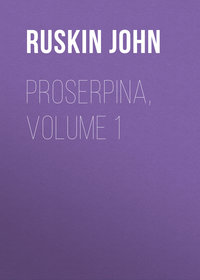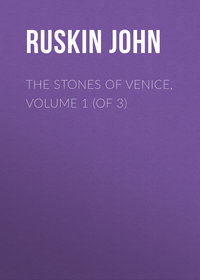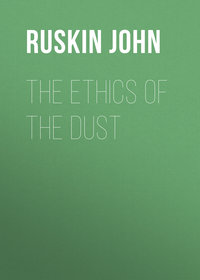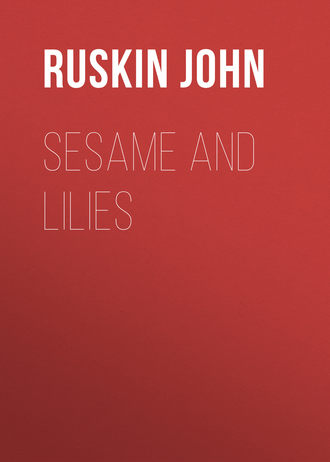
Sesame and Lilies
My friends, I do not know why any of us should talk about reading. We want some sharper discipline than that of reading; but, at all events, be assured, we cannot read. No reading is possible for a people with its mind in this state. No sentence of any great writer is intelligible to them. It is simply and sternly impossible for the English public, at this moment, to understand any thoughtful writing,—so incapable of thought has it become in its insanity of avarice. Happily, our disease is, as yet, little worse than this incapacity of thought; it is not corruption of the inner nature; we ring true still, when anything strikes home to us; and though the idea that everything should "pay" has infected our every purpose so deeply, that even when we would play the good Samaritan, we never take out our two pence and give them to the host, without saying, "When I come again, thou shalt give me fourpence," there is a capacity of noble passion left in our hearts' core. We show it in our work—in our war,—even in those unjust domestic affections which make us furious at a small private wrong, while we are polite to a boundless public one: we are still industrious to the last hour of the day, though we add the gambler's fury to the labourer's patience; we are still brave to the death, though incapable of discerning true cause for battle; and are still true in affection to our own flesh, to the death, as the sea-monsters are, and the rock- eagles. And there is hope for a nation while this can be still said of it. As long as it holds its life in its hand, ready to give it for its honour (though a foolish honour), for its love (though a selfish love), and for its business (though a base business), there is hope for it. But hope only; for this instinctive, reckless virtue cannot last. No nation can last, which has made a mob of itself, however generous at heart. It must discipline its passions, and direct them, or they will discipline it, one day, with scorpion whips. Above all, a nation cannot last as a money-making mob: it cannot with impunity,—it cannot with existence,—go on despising literature, despising science, despising art, despising nature, despising compassion, and concentrating its soul on Pence. Do you think these are harsh or wild words? Have patience with me but a little longer. I will prove their truth to you, clause by clause.
(I.) I say first we have despised literature. What do we, as a nation, care about books? How much do you think we spend altogether on our libraries, public or private, as compared with what we spend on our horses? If a man spends lavishly on his library, you call him mad—a bibliomaniac. But you never call any one a horsemaniac, though men ruin themselves every day by their horses, and you do not hear of people ruining themselves by their books. Or, to go lower still, how much do you think the contents of the book-shelves of the United Kingdom, public and private, would fetch, as compared with the contents of its wine-cellars? What position would its expenditure on literature take, as compared with its expenditure on luxurious eating? We talk of food for the mind, as of food for the body: now a good book contains such food inexhaustibly; it is a provision for life, and for the best part of us; yet how long most people would look at the best book before they would give the price of a large turbot for it? Though there have been men who have pinched their stomachs and bared their backs to buy a book, whose libraries were cheaper to them, I think, in the end, than most men's dinners are. We are few of us put to such trial, and more the pity; for, indeed, a precious thing is all the more precious to us if it has been won by work or economy; and if public libraries were half so costly as public dinners, or books cost the tenth part of what bracelets do, even foolish men and women might sometimes suspect there was good in reading, as well as in munching and sparkling: whereas the very cheapness of literature is making even wise people forget that if a book is worth reading, it is worth buying. No book is worth anything which is not worth MUCH; nor is it serviceable, until it has been read, and re-read, and loved, and loved again; and marked, so that you can refer to the passages you want in it, as a soldier can seize the weapon he needs in an armoury, or a housewife bring the spice she needs from her store. Bread of flour is good; but there is bread, sweet as honey, if we would eat it, in a good book; and the family must be poor indeed, which, once in their lives, cannot, for, such multipliable barley-loaves, pay their baker's bill. We call ourselves a rich nation, and we are filthy and foolish enough to thumb each other's books out of circulating libraries!
(II.) I say we have despised science. "What!" you exclaim, "are we not foremost in all discovery,9 and is not the whole world giddy by reason, or unreason, of our inventions?" Yes; but do you suppose that is national work? That work is all done IN SPITE OF the nation; by private people's zeal and money. We are glad enough, indeed, to make our profit of science; we snap up anything in the way of a scientific bone that has meat on it, eagerly enough; but if the scientific man comes for a bone or a crust to US, that is another story. What have we publicly done for science? We are obliged to know what o'clock it is, for the safety of our ships, and therefore we pay for an observatory; and we allow ourselves, in the person of our Parliament, to be annually tormented into doing something, in a slovenly way, for the British Museum; sullenly apprehending that to be a place for keeping stuffed birds in, to amuse our children. If anybody will pay for their own telescope, and resolve another nebula, we cackle over the discernment as if it were our own; if one in ten thousand of our hunting squires suddenly perceives that the earth was indeed made to be something else than a portion for foxes, and burrows in it himself, and tells us where the gold is, and where the coals, we understand that there is some use in that; and very properly knight him: but is the accident of his having found out how to employ himself usefully any credit to US? (The negation of such discovery among his brother squires may perhaps be some discredit to us, if we would consider of it.) But if you doubt these generalities, here is one fact for us all to meditate upon, illustrative of our love of science. Two years ago there was a collection of the fossils of Solenhofen to be sold in Bavaria; the best in existence, containing many specimens unique for perfectness, and one unique as an example of a species (a whole kingdom of unknown living creatures being announced by that fossil). This collection, of which the mere market worth, among private buyers, would probably have been some thousand or twelve hundred pounds, was offered to the English nation for seven hundred: but we would not give seven hundred, and the whole series would have been in the Munich Museum at this moment, if Professor Owen10 had not, with loss of his own time, and patient tormenting of the British public in person of its representatives, got leave to give four hundred pounds at once, and himself become answerable for the other three! which the said public will doubtless pay him eventually, but sulkily, and caring nothing about the matter all the while; only always ready to cackle if any credit comes of it. Consider, I beg of you, arithmetically, what this fact means. Your annual expenditure for public purposes, (a third of it for military apparatus,) is at least 50 millions. Now 700L. is to 50,000,000L. roughly, as seven pence to two thousand pounds. Suppose, then, a gentleman of unknown income, but whose wealth was to be conjectured from the fact that he spent two thousand a year on his park-walls and footmen only, professes himself fond of science; and that one of his servants comes eagerly to tell him that an unique collection of fossils, giving clue to a new era of creation, is to be had for the sum of seven pence sterling; and that the gentleman who is fond of science, and spends two thousand a year on his park, answers, after keeping his servant waiting several months, "Well! I'll give you fourpence for them, if you will be answerable for the extra threepence yourself, till next year!"
(III.) I say you have despised Art! "What!" you again answer, "have we not Art exhibitions, miles long? and do we not pay thousands of pounds for single pictures? and have we not Art schools and institutions,—more than ever nation had before?" Yes, truly, but all that is for the sake of the shop. You would fain sell canvas as well as coals, and crockery as well as iron; you would take every other nation's bread out of its mouth if you could;11 not being able to do that, your ideal of life is to stand in the thoroughfares of the world, like Ludgate apprentices, screaming to every passer-by, "What d'ye lack?" You know nothing of your own faculties or circumstances; you fancy that, among your damp, flat, fat fields of clay, you can have as quick art-fancy as the Frenchman among his bronzed vines, or the Italian under his volcanic cliffs;– that Art may be learned, as book-keeping is, and when learned, will give you more books to keep. You care for pictures, absolutely, no more than you do for the bills pasted on your dead walls. There is always room on the walls for the bills to be read,—never for the pictures to be seen. You do not know what pictures you have (by repute) in the country, nor whether they are false or true, nor whether they are taken care of or not; in foreign countries, you calmly see the noblest existing pictures in the world rotting in abandoned wreck—(in Venice you saw the Austrian guns deliberately pointed at the palaces containing them), and if you heard that all the fine pictures in Europe were made into sand-bags to-morrow on the Austrian forts, it would not trouble you so much as the chance of a brace or two of game less in your own bags, in a day's shooting. That is your national love of Art.
(IV.) You have despised Nature; that is to say, all the deep and sacred sensations of natural scenery. The French revolutionists made stables of the cathedrals of France; you have made race-courses of the cathedrals of the earth. Your ONE conception of pleasure is to drive in railroad carriages round their aisles, and eat off their altars.12 You have put a railroad-bridge over the falls of Schaffhausen. You have tunnelled the cliffs of Lucerne by Tell's chapel; you have destroyed the Clarens shore of the Lake of Geneva; there is not a quiet valley in England that you have not filled with bellowing fire; there is no particle left of English land which you have not trampled coal ashes into13 —nor any foreign city in which the spread of your presence is not marked among its fair old streets and happy gardens by a consuming white leprosy of new hotels and perfumers' shops: the Alps themselves, which your own poets used to love so reverently, you look upon as soaped poles in a bear- garden, which you set yourselves to climb and slide down again, with "shrieks of delight." When you are past shrieking, having no human articulate voice to say you are glad with, you fill the quietude of their valleys with gunpowder blasts, and rush home, red with cutaneous eruption of conceit, and voluble with convulsive hiccough of self-satisfaction. I think nearly the two sorrowfullest spectacles I have ever seen in humanity, taking the deep inner significance of them, are the English mobs in the valley of Chamouni, amusing themselves with firing rusty howitzers; and the Swiss vintagers of Zurich expressing their Christian thanks for the gift of the vine, by assembling in knots in the "towers of the vineyards," and slowly loading and firing horse-pistols from morning till evening. It is pitiful, to have dim conceptions of duty; more pitiful, it seems to me, to have conceptions like these, of mirth.
Lastly. You despise compassion. There is no need of words of mine for proof of this. I will merely print one of the newspaper paragraphs which I am in the habit of cutting out and throwing into my store-drawer; here is one from a 'Daily Telegraph' of an early date this year (1867); (date which, though by me carelessly left unmarked, is easily discoverable; for on the back of the slip there is the announcement that "yesterday the seventh of the special services of this year was performed by the Bishop of Ripon in St. Paul's";) it relates only one of such facts as happen now daily; this by chance having taken a form in which it came before the coroner. I will print the paragraph in red. Be sure, the facts themselves are written in that colour, in a book which we shall all OF us, literate or illiterate, have to read our page of, some day.
An inquiry was held on Friday by Mr. Richards, deputy coroner, at the White Horse Tavern, Christ Church, Spitalfields, respecting the death of Michael Collins, aged 58 years. Mary Collins, a miserable- looking woman, said that she lived with the deceased and his son in a room at 2, Cobb's Court, Christ Church. Deceased was a "translator" of boots. Witness went out and bought old boots; deceased and his son made them into good ones, and then witness sold them for what she could get at the shops, which was very little indeed. Deceased and his son used to work night and day to try and get a little bread and tea, and pay for the room (2S. a week), so as to keep the home together. On Friday-night-week deceased got up from his bench and began to shiver. He threw down the boots, saying, "Somebody else must finish them when I am gone, for I can do no more." There was no fire, and he said, "I would be better if I was warm." Witness therefore took two pairs of translated boots14 to sell at the shop, but she could only get 14D. for the two pairs, for the people at the shop said, "We must have our profit." Witness got 14lb. of coal, and a little tea and bread. Her son sat up the whole night to make the "translations," to get money, but deceased died on Saturday morning. The family never had enough to eat.—Coroner: "It seems to me deplorable that you did not go into the workhouse." Witness: "We wanted the comforts of our little home." A juror asked what the comforts were, for he only saw a little straw in the corner of the room, the windows of which were broken. The witness began to cry, and said that they had a quilt and other little things. The deceased said he never would go into the workhouse. In summer, when the season was good, they sometimes made as much as 10S. profit in the week. They then always saved towards the next week, which was generally a bad one. In winter they made not half so much. For three years they had been getting from bad to worse.—Cornelius Collins said that he had assisted his father since 1847. They used to work so far into the night that both nearly lost their eyesight. Witness now had a film over his eyes. Five years ago deceased applied to the parish for aid. The relieving officer gave him a 4lb. loaf, and told him if he came again he should "get the stones."15 That disgusted deceased, and he would have nothing to do with them since. They got worse and worse until last Friday week, when they had not even a half-penny to buy a candle. Deceased then lay down on the straw, and said he could not live till morning.—A juror: "You are dying of starvation yourself, and you ought to go into the house until the summer."– Witness: "If we went in we should die. When we come out in the summer we should be like people dropped from the sky. No one would know us, and we would not have even a room. I could work now if I had food, for my sight would get better." Dr. G. P. Walker said deceased died from syncope, from exhaustion from want of food. The deceased had had no bedclothes. For four months he had had nothing but bread to eat. There was not a particle of fat in the body. There was no disease, but, if there had been medical attendance, he might have survived the syncope or fainting. The Coroner having remarked upon the painful nature of the case, the jury returned the following verdict: "That deceased died from exhaustion from want of food and the common necessaries of life; also through want of medical aid."
"Why would witness not go into the workhouse?" you ask. Well, the poor seem to have a prejudice against the workhouse which the rich have not; for of course everyone who takes a pension from Government goes into the workhouse on a grand scale:16 only the workhouses for the rich do not involve the idea of work, and should be called play-houses. But the poor like to die independently, it appears; perhaps if we made the play-houses for them pretty and pleasant enough, or gave them their pensions at home, and allowed them a little introductory peculation with the public money, their minds might be reconciled to the conditions. Meantime, here are the facts: we make our relief either so insulting to them, or so painful, that they rather die than take it at our hands; or, for third alternative, we leave them so untaught and foolish that they starve like brute creatures, wild and dumb, not knowing what to do, or what to ask. I say, you despise compassion; if you did not, such a newspaper paragraph would be as impossible in a Christian country as a deliberate assassination permitted in its public streets.17 "Christian," did I say? Alas! if we were but wholesomely UN- Christian, it would be impossible: it is our imaginary Christianity that helps us to commit these crimes, for we revel and luxuriate in our faith, for the lewd sensation of it; dressing IT up, like everything else, in fiction. The dramatic Christianity of the organ and aisle, of dawn-service and twilight-revival—the Christianity, which we do not fear to mix the mockery of, pictorially, with our play about the devil, in our Satanellas,—Roberts,—Fausts; chanting hymns through traceried windows for background effect, and artistically modulating the "Dio" through variation on variation of mimicked prayer: (while we distribute tracts, next day, for the benefit of uncultivated swearers, upon what we suppose to be the signification of the Third Commandment;-) this gas-lighted, and gas- inspired Christianity, we are triumphant in, and draw back the hem of our robes from the touch of the heretics who dispute it. But to do a piece of common Christian righteousness in a plain English word or deed; to make Christian law any rule of life, and found one National act or hope thereon,—we know too well what our faith comes to for that! You might sooner get lightning out of incense smoke than true action or passion out of your modern English religion. You had better get rid of the smoke, and the organ pipes, both: leave them, and the Gothic windows, and the painted glass, to the property man; give up your carburetted hydrogen ghost in one healthy expiration, and look after Lazarus at the doorstep. For there is a true Church wherever one hand meets another helpfully, and that is the only holy or Mother Church which ever was, or ever shall be.
All these pleasures then, and all these virtues, I repeat, you nationally despise. You have, indeed, men among you who do not; by whose work, by whose strength, by whose life, by whose death, you live, and never thank them. Your wealth, your amusement, your pride, would all be alike impossible, but for those whom you scorn or forget. The policeman, who is walking up and down the black lane all night to watch the guilt you have created there; and may have his brains beaten out, and be maimed for life, at any moment, and never be thanked; the sailor wrestling with the sea's rage; the quiet student poring over his book or his vial; the common worker, without praise, and nearly without bread, fulfilling his task as your horses drag your carts, hopeless, and spurned of all: these are the men by whom England lives; but they are not the nation; they are only the body and nervous force of it, acting still from old habit in a convulsive perseverance, while the mind is gone. Our National wish and purpose are only to be amused; our National religion is the performance of church ceremonies, and preaching of soporific truth (or untruths) to keep the mob quietly at work, while we amuse ourselves; and the necessity for this amusement is fastening on us, as a feverous disease of parched throat and wandering eyes—senseless, dissolute, merciless. How literally that word DIS-Ease, the Negation and impossibility of Ease, expresses the entire moral state of our English Industry and its Amusements!
When men are rightly occupied, their amusement grows out of their work, as the colour-petals out of a fruitful flower;—when they are faithfully helpful and compassionate, all their emotions become steady, deep, perpetual, and vivifying to the soul as the natural pulse to the body. But now, having no true business, we pour our whole masculine energy into the false business of money-making; and having no true emotion, we must have false emotions dressed up for us to play with, not innocently, as children with dolls, but guiltily and darkly, as the idolatrous Jews with their pictures on cavern walls, which men had to dig to detect. The justice we do not execute, we mimic in the novel and on the stage; for the beauty we destroy in nature, we substitute the metamorphosis of the pantomime, and (the human nature of us imperatively requiring awe and sorrow of SOME kind) for the noble grief we should have borne with our fellows, and the pure tears we should have wept with them, we gloat over the pathos of the police court, and gather the night-dew of the grave.
It is difficult to estimate the true significance of these things; the facts are frightful enough;—the measure of national fault involved in them is perhaps not as great as it would at first seem. We permit, or cause, thousands of deaths daily, but we mean no harm; we set fire to houses, and ravage peasants' fields, yet we should be sorry to find we had injured anybody. We are still kind at heart; still capable of virtue, but only as children are. Chalmers, at the end of his long life, having had much power with the public, being plagued in some serious matter by a reference to "public opinion," uttered the impatient exclamation, "The public is just a great baby!" And the reason that I have allowed all these graver subjects of thought to mix themselves up with an inquiry into methods of reading, is that, the more I see of our national faults or miseries, the more they resolve themselves into conditions of childish illiterateness and want of education in the most ordinary habits of thought. It is, I repeat, not vice, not selfishness, not dulness of brain, which we have to lament; but an unreachable schoolboy's recklessness, only differing from the true schoolboy's in its incapacity of being helped, because it acknowledges no master.
There is a curious type of us given in one of the lovely, neglected works of the last of our great painters. It is a drawing of Kirkby Lonsdale churchyard, and of its brook, and valley, and hills, and folded morning sky beyond. And unmindful alike of these, and of the dead who have left these for other valleys and for other skies, a group of schoolboys have piled their little books upon a grave, to strike them off with stones. So, also, we play with the words of the dead that would teach us, and strike them far from us with our bitter, reckless will; little thinking that those leaves which the wind scatters had been piled, not only upon a gravestone, but upon the seal of an enchanted vault—nay, the gate of a great city of sleeping kings, who would awake for us and walk with us, if we knew but how to call them by their names. How often, even if we lift the marble entrance gate, do we but wander among those old kings in their repose, and finger the robes they lie in, and stir the crowns on their foreheads; and still they are silent to us, and seem but a dusty imagery; because we know not the incantation of the heart that would wake them;—which, if they once heard, they would start up to meet us in their power of long ago, narrowly to look upon us, and consider us; and, as the fallen kings of Hades meet the newly fallen, saying, "Art thou also become weak as we—art thou also become one of us?" so would these kings, with their undimmed, unshaken diadems, meet us, saying, "Art thou also become pure and mighty of heart as we—art thou also become one of us?"
Mighty of heart, mighty of mind—"magnanimous"—to be this, is indeed to be great in life; to become this increasingly, is, indeed, to "advance in life,"—in life itself—not in the trappings of it. My friends, do you remember that old Scythian custom, when the head of a house died? How he was dressed in his finest dress, and set in his chariot, and carried about to his friends' houses; and each of them placed him at his table's head, and all feasted in his presence? Suppose it were offered to you in plain words, as it IS offered to you in dire facts, that you should gain this Scythian honour, gradually, while you yet thought yourself alive. Suppose the offer were this: You shall die slowly; your blood shall daily grow cold, your flesh petrify, your heart beat at last only as a rusted group of iron valves. Your life shall fade from you, and sink through the earth into the ice of Caina; but, day by day, your body shall be dressed more gaily, and set in higher chariots, and have more orders on its breast—crowns on its head, if you will. Men shall bow before it, stare and shout round it, crowd after it up and down the streets; build palaces for it, feast with it at their tables' heads all the night long; your soul shall stay enough within it to know what they do, and feel the weight of the golden dress on its shoulders, and the furrow of the crown-edge on the skull;—no more. Would you take the offer, verbally made by the death-angel? Would the meanest among us take it, think you? Yet practically and verily we grasp at it, every one of us, in a measure; many of us grasp at it in its fulness of horror. Every man accepts it, who desires to advance in life without knowing what life is; who means only that he is to get more horses, and more footmen, and more fortune, and more public honour, and—NOT more personal soul. He only is advancing in life, whose heart is getting softer, whose blood warmer, whose brain quicker, whose spirit is entering into Living18 peace. And the men who have this life in them are the true lords or kings of the earth—they, and they only. All other kingships, so far as they are true, are only the practical issue and expression of theirs; if less than this, they are either dramatic royalties,—costly shows, set off, indeed, with real jewels, instead of tinsel—but still only the toys of nations; or else they are no royalties at all, but tyrannies, or the mere active and practical issue of national folly; for which reason I have said of them elsewhere, "Visible governments are the toys of some nations, the diseases of others, the harness of some, the burdens of more."


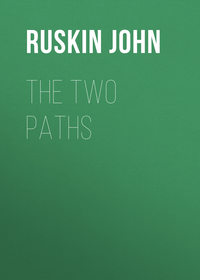
![Stones of Venice [introductions]](/covers_200/34843654.jpg)
